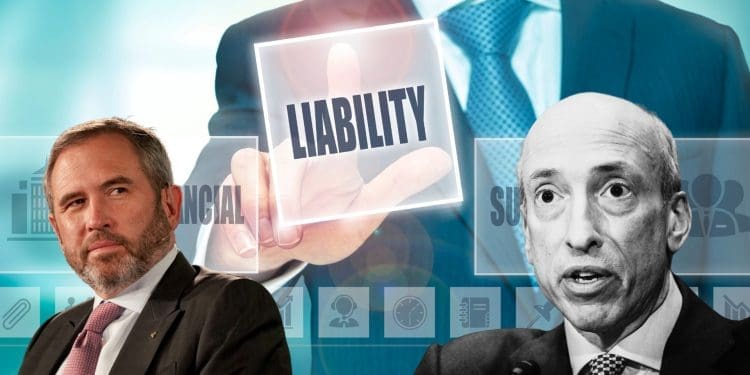- Ripple CEO Brad Garlinghouse criticized SEC chair Gary Gensler for his rigid regulatory approach towards crypto, accusing him of hindering innovation.
- Garlinghouse described Gensler’s stance as reflecting political motivations rather than sound policy. He contrasted the restrictive US environment with more progressive EU regulation.
- Despite the difficult US climate, Garlinghouse remains optimistic on legislative improvements and Ripple’s growth prospects driven by new services and compliance.
Ripple CEO Brad Garlinghouse recently criticized SEC chair Gary Gensler for his rigid stance towards crypto regulation. He accused Gensler of hindering economic growth and innovation with his consistent actions against the crypto industry.
Garlinghouse Calls Gensler’s Approach a “Political Liability”
In an interview at the World Economic Forum in Davos, Garlinghouse described Gensler’s regulatory approach as unchanging and overly rigid. He suggested Gensler’s stance reflects more of a political agenda rather than sound economic policy. Garlinghouse believes Gensler’s repeated legal actions and labeling of crypto assets as securities have made him a “political liability.”
Garlinghouse Contrasts US and EU Regulation
The Ripple CEO compared the restrictive US regulatory environment with more progressive approaches in the EU and other regions. He warned that the US risks falling behind if it does not establish clear frameworks to support crypto innovation. However, Garlinghouse expects potential legislative action in 2024 during an election year.
Outlook on ETFs and Ripple’s Growth
Regarding ETFs, Garlinghouse believes more crypto ETFs are likely after the SEC approved Bitcoin ETFs. He cited rising demand as seen in Ethereum’s price spike. For Ripple, he shared a positive outlook driven by new services and compliance. Garlinghouse also noted evolving dynamics in tech investments towards more mature environments.
Conclusion
In summary, Brad Garlinghouse issued strong criticism against SEC chair Gary Gensler’s strict regulatory stance against crypto. He argued Gensler’s approach stifles innovation and represents political motivations rather than sound policy. Garlinghouse remains optimistic on legislative improvements and Ripple’s growth prospects despite the difficult US regulatory climate.














